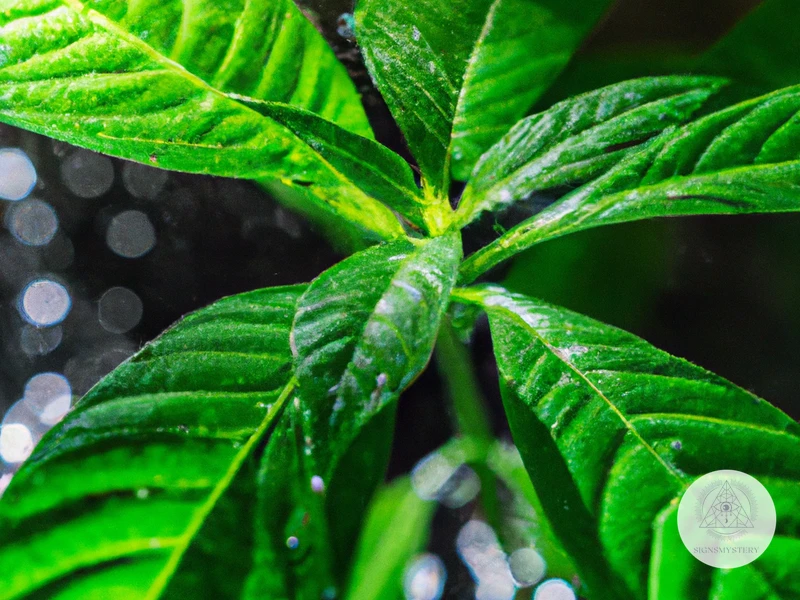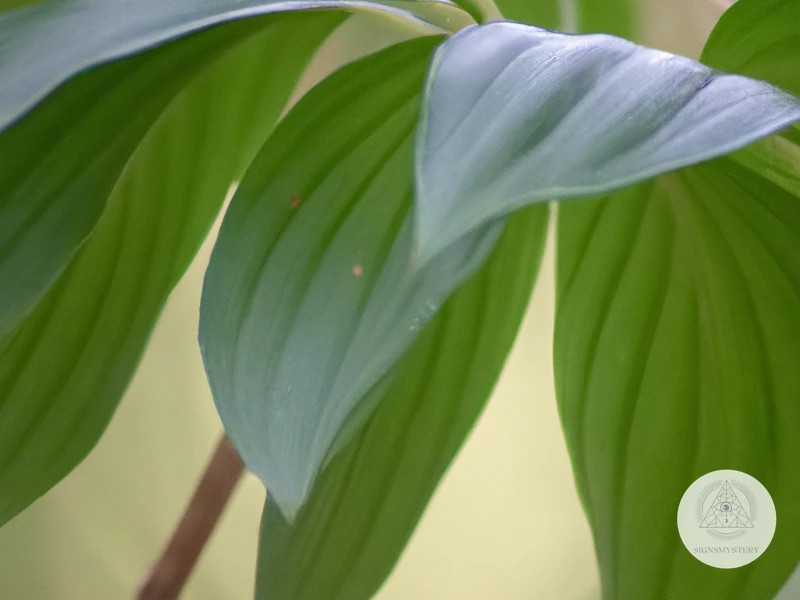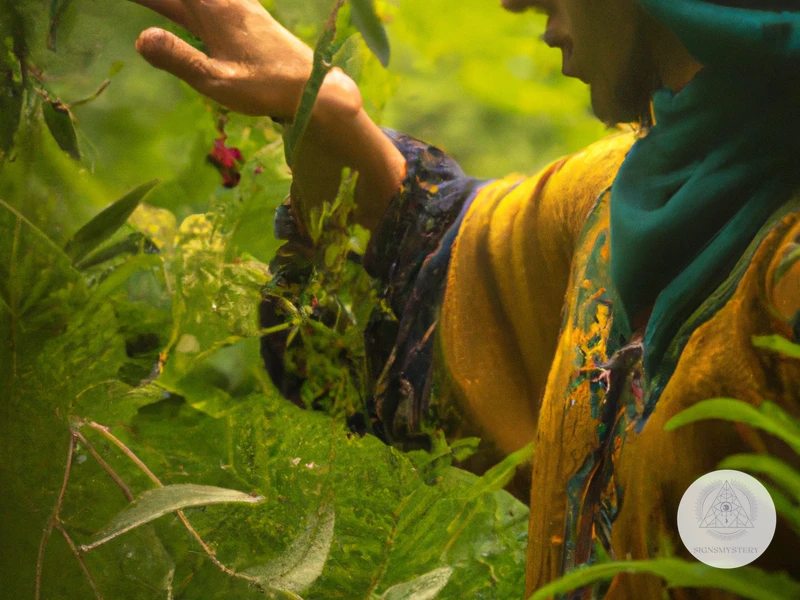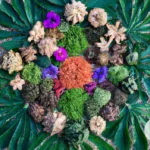When it comes to healing, many people turn to traditional medicines and practices. One such practice is Shamanism, which utilizes the power of plant medicine to heal the body, mind, and spirit. The idea of using plants to heal is not a new concept, and has been used for thousands of years in cultures all over the world. But what exactly is plant medicine and how does it play a role in shamanic healing? This article will delve into the topic, exploring the different types of plant medicine, the benefits it offers, as well as the risks and precautions involved in seeking it out. Whether you are curious about shamanic healing or considering exploring plant medicine as a means of healing, this article aims to provide you with all the information you need to make an informed decision.
What is Plant Medicine?

Plant Medicine refers to the use of various plants for medicinal purposes. Many cultures around the world have been using plant medicine for centuries to promote physical, mental, and spiritual wellness. Some examples of plant medicines are Ayahuasca, San Pedro, Psilocybin mushrooms, and Cannabis. Plant medicine is often used in shamanic practices to facilitate healing and spiritual growth. It is believed that different plants have different healing properties and can help individuals on various levels. Plant medicine ceremonies have become more popular in the west in recent years, attracting people who are seeking alternative forms of healing. It is important to note that the use of plant medicine should be approached with caution and only under the guidance of a trained facilitator.
Types of Plant Medicine
Plant medicine is a term used to describe the power of different plants and herbs that are used to improve one’s health and well-being. Shamanic healers have been using plant medicine for centuries to gain access to the spiritual world and treat various physical and mental ailments.
The most commonly used plant medicine is Ayahuasca, a powerful plant that has been used for centuries by the indigenous people of the Amazon rainforest. The practice of Ayahuasca involves drinking a brew made from the Ayahuasca vine and different plants, which is said to help one connect with their inner self and the spiritual world.
Another plant medicine that is gaining in popularity is Cannabis, which is used for treating patients with chronic pain, anxiety, depression, and other mental and physical conditions. This plant has been used for medicinal purposes for centuries, and its medicinal properties are now being recognized in many countries around the world.
Other types of plant medicine include Psilocybin, a psychedelic compound found in certain types of mushrooms, and San Pedro, a cactus that contains mescaline and is used in shamanic healing practices.
It is important to note that plant medicine should always be used with caution and under the guidance of an experienced shamanic healer. The use of plant medicine should be approached with respect and reverence for the plants and the spiritual world they represent.
The Role of Shamanism in Healing
Shamanism has been practiced for centuries in many cultures as a way to connect with the spiritual world and to bring healing to individuals. Shamanic healing focuses on the belief that there is a connection between the spiritual realm and the physical world, and that by working with this connection, both spiritual and physical healing can be achieved.
Shamans are individuals who have been called to this path and have undergone intensive training to be able to enter into states of consciousness where they can communicate with spirits and navigate the spiritual world. In doing so, they can work with the spirits to bring healing to individuals who are suffering from various physical, emotional, and spiritual ailments.
The shamanic approach to healing is unique in that it looks beyond just the physical symptoms of an ailment and instead focuses on the underlying spiritual, emotional, and energetic imbalances that may be contributing to the problem. By working with spiritual allies, such as power animals or spirit guides, the shaman can help individuals to gain insight into these deeper imbalances and to make the necessary changes to bring themselves back into balance.
One of the key elements of shamanic healing is the use of plant medicine. These natural substances can help to facilitate the shamanic journey, allowing individuals to enter into altered states of consciousness where they can connect with the spiritual world more easily. Plant medicine can also help to bring about physical, emotional, and spiritual healing on its own, as many of these substances contain powerful healing properties.
The role of the shaman in the healing process is to act as a guide, helping the individual to navigate the spiritual realm and to work with the spirits to achieve their healing goals. The shaman may use a variety of techniques, such as shamanic journeying, breathwork, or soul retrieval, depending on the individual’s needs and the guidance of their spiritual allies.
In addition to their work in the spiritual realm, shamans often incorporate other healing modalities, such as energy work or bodywork, to help integrate the healing that has taken place and to support the individual’s physical and emotional wellbeing.
The role of shamanism in healing is to facilitate a deeper connection with the spiritual realm in order to bring about holistic healing on all levels. Through their work with plant medicine, spiritual allies, and various healing modalities, shamans can help individuals to tap into their own innate healing abilities and to create lasting change in their lives.
Benefits of Plant Medicine

For centuries, plant medicine has been used by indigenous cultures for its various healing properties. The benefits of plant medicine can be physical, psychological, and spiritual. Physically, plant medicine can help alleviate chronic pain, reduce inflammation, and boost the immune system. Psychologically, it has been noted to decrease anxiety and depression, making it a popular alternative therapy in treating mental health conditions. Spiritually, it has been used in shamanic practices to facilitate deeper connections with the self and nature, allowing for profound personal growth and healing. It is important to note that plant medicine should be used with caution and under the guidance of an experienced facilitator, and that its effects can vary widely between individuals. By incorporating plant medicine into their healing practices, individuals may be able to tap into its powerful therapeutic benefits and experience profound transformation.
Physical Benefits
Plant medicine has been known to contribute to physical healing as well. Here are a few physical benefits of using plant medicine:
| Physical Benefit | Description |
|---|---|
| Pain Relief | Many plant medicines have anti-inflammatory properties that can help alleviate physical aches and pains. A study found that shamanic healing using Ayahuasca, a medicinal plant, significantly reduced symptoms of chronic pain among participants. |
| Improved Immune System | Some plant medicines contain compounds that can boost the immune system, making individuals less susceptible to infection. For example, the Reishi mushroom is known to have immune-boosting effects due to its beta-glucans compounds. |
| Detoxification | Many plant medicines can cleanse the body and remove toxins that have built up over time. For instance, the San Pedro cactus can help eliminate toxins in the liver, kidneys, and gallbladder, leading to improved overall bodily function. |
| Better Sleep Quality | Plant medicines like Valerian root and Kava can have sedative effects, promoting relaxation and assisting in getting better sleep quality. Good sleep quality is important in maintaining overall physical health. |
It’s worth noting that the physical benefits of plant medicine should not be used as a substitute for medical treatment for chronic illnesses. While it can complement medical treatment to an extent, it should be used with caution and always with the guidance of a trained facilitator.
Psychological Benefits
Plant medicine has been known to provide many psychological benefits that aid in treating mental health issues and trauma. Here are some of the psychological benefits that can be obtained through the use of plant medicine:
| BENEFITS | DESCRIPTION |
|---|---|
| Reduced Anxiety and Depression | Plant medicine can reduce anxiety and depression levels and improve emotional regulation. It has been shown to stimulate the release of endorphins and other feel-good hormones that can ease symptoms of anxiety and depression. The introspection gained from the use of specific plants can help uncover the root causes of anxiety and depression, leading to growth and healing. |
| Trauma Healing | PTSD (post-traumatic stress disorder) and other trauma-related illnesses can be treated with plant medicine. Some plants have been proven to help process and integrate traumatic experiences, leading to the release of emotional pain associated with memories of the event. Additionally, the use of plant medicine in trauma healing has been found to produce long-lasting positive changes in the lives of people who have undergone these experiences. |
| Increase in Creativity | The use of plant medicine can tap into deep, creative, and intuitive parts of the brain. It can improve imagination, artistic abilities, and the ability to solve problems in unconventional ways. Also, plants that are considered entheogenic can stimulate the production of DMT, which can open the gateway to multidimensional experience and creative insight. |
| Spiritual Growth and Exploration | Plant medicine can offer a profound spiritual experience that can alter one’s perception of the world, increase one’s awareness and understanding of the self, the universe, and the interconnectivity of all things. It can provide a deep sense of purpose, connection to nature, and foster spiritual growth, as well as a feeling of profound peace and contentment. |
| Improvement in Relationships | Plant medicine can enhance self-awareness, empathy, and compassion, leading to more profound and meaningful interpersonal relationships. It can also aid in repairing fragmented bonds and rebuilding trust among loved ones. |
It’s essential to note that plant medicine should not be considered a cure for any condition, but rather a healing tool that offers support in conjunction with integrative practices. Psychological benefits are often not immediate after a ceremony, and an individual’s healing process may take time, patience, and effort. Shamanic counseling, breathwork, or other shamanic healing modalities can assist in the integration and grounding of the experience.
Anchor: For a deeper understanding of shamanic healing and its connection to music, you can check out this article on music and shamanic healing.
Plant Medicine as a Spiritual Tool
Plant medicine has been used by shamanic practitioners for centuries as a spiritual tool for healing the mind, body, and soul. Through the use of specific plants, individuals are able to tap into a higher level of consciousness and seek guidance from the spiritual realm.
One commonly used plant medicine is ayahuasca, a powerful brew made from the ayahuasca vine and chacruna leaves. Ayahuasca is known for inducing intense spiritual experiences that can lead to profound personal transformation and healing. It is often used in shamanic ceremonies as a means to connect with the spirit world and access deeper levels of understanding about oneself and the universe.
Another plant medicine frequently used by shamans is peyote, a small cactus that contains the psychoactive compound mescaline. Peyote is often used in Native American traditions as a sacrament and is believed to have the ability to heal physical, emotional, and spiritual ailments.
Plant medicines can also be used to facilitate shapeshifting, a healing technique used in shamanism where a person embodies the energy of an animal or plant. This can be a powerful tool for accessing different perspectives and gaining insight into one’s own behavior and patterns.
In addition to shapeshifting, plant medicine can aid in soul retrieval, another healing technique used in shamanism. Soul retrieval involves recovering aspects of oneself that were lost due to trauma or other life experiences. Plant medicine can help facilitate this process by allowing individuals to access and integrate these lost parts of themselves.
It’s important to note that plant medicine should be approached with caution and only taken in a controlled, safe environment with a trained facilitator. While the benefits of plant medicine can be profound, there can also be risks if not used properly. It’s always advisable to do thorough research and seek out an experienced shaman or facilitator before embarking on a plant medicine journey.
Plant medicine can be a powerful tool for spiritual growth and healing when used with intention and respect. It can aid in shapeshifting, soul retrieval, and accessing deeper levels of consciousness. However, it’s crucial to approach plant medicine with caution and seek out experienced facilitators to ensure a safe and transformative experience.
Risks and Precautions

It’s important to keep in mind that working with plant medicine can have potential risks and should always be approached with caution. One of the most significant risks is the possibility of having an adverse reaction, particularly if you have pre-existing medical conditions or are taking medications. Additionally, depending on the specific plant used, there can be potential risks such as increased heart rate or blood pressure, nausea, vomiting, diarrhea, and dehydration. It’s essential to do your research and understand the possible effects of the plant medicine you are considering.
Another important precaution is to ensure that you are working with a qualified shamanic practitioner or facilitator who has extensive experience working with plant medicine. A knowledgeable facilitator can guide you through the process and ensure that you are safe and supported throughout the ceremony.
Integration is also a crucial part of the healing process. It’s essential to take the time to reflect on and integrate the insights and healing received during the ceremony. This can involve activities such as journaling, meditating, and spending time in nature. Additionally, it can be helpful to discuss your experiences with a therapist or trusted friend who has experience with plant medicine.
It’s important to approach plant medicine with respect and reverence. Some people may see it as a recreational drug, but that
Subscribe to Our Newsletter
Sign up to receive the latest news and updates.
Internal link: If you’re interested in learning more about shamanic healing techniques, you can read about shapeshifting in shamanism and how it can be used as a healing technique.
Guidelines for Seeking Plant Medicine
involve careful consideration of the facilitator, preparation for ceremony, and integration process after. When choosing a facilitator, it is important to research and ensure they are experienced, trained, and operate in a safe and legal manner. During preparation for ceremony, individuals must abstain from certain foods and avoid drugs and alcohol. Additionally, it is recommended to set an intention for the ceremony and come with an open mind. After the ceremony, the integration process involves reflecting on the experience, discussing it with others, seeking support if needed, and making positive changes in daily life. It is important to approach Plant Medicine with caution and respect its power. Seek guidance from a qualified shaman or visit websites like understanding-soul-retrieval-shamanism and breathwork-shamanic-healing for more information on safety and finding a reputable facilitator.
Choosing a Facilitator
When it comes to choosing a plant medicine facilitator, it’s crucial to do research and even more importantly, to listen to your intuition. Here are some factors to consider:
| Factor | What to Consider |
|---|---|
| Experience and Training | Look for a facilitator who has extensive experience working with plant medicines and has trained under reputable shamans or healers. Inquire about their training, how long they have been working with plant medicine, and how many ceremonies they have facilitated. |
| Reputation | Research the facilitator’s reputation within the community. Look for reviews or ask for references from previous participants. Be wary of facilitators who make promises that seem too good to be true. |
| Integration Support | Find out what kind of integration support the facilitator offers after the ceremony. Will there be a follow-up session or ongoing support? Integration is a crucial part of the healing process, and it’s essential that the facilitator can provide support during this time. |
| Environment and Safety | Make sure the ceremony environment is safe, clean, and comfortable. The facilitator should provide clear guidelines for what to expect during the ceremony and what to do if someone experiences discomfort or a medical emergency. |
| Compatibility | Trust your intuition when it comes to compatibility with the facilitator. If you don’t feel comfortable with the person or something feels off, it’s likely not a good fit. Look for someone who is compassionate, caring, and trustworthy. |
It’s important to remember that working with plant medicines can be a powerful and transformative experience, and finding the right facilitator can make all the difference. Don’t be afraid to ask questions, trust your instincts, and take the necessary time to find a facilitator who resonates with you.
Preparing for Ceremony
Preparing for Ceremony can be a crucial aspect of working with plant medicine, as it sets the foundation for the experience. Here are some important steps to keep in mind:
| Step | Description |
|---|---|
| Research | Do your research and select a reputable facilitator or retreat center. Make sure they have experience and positive reviews from past participants. |
| Set Your Intention | Before the ceremony, set your intention for what you hope to gain or heal from the experience. This can be a powerful tool in guiding the journey. |
| Fasting or Dietary Restrictions | Some plant medicines require fasting or dietary restrictions beforehand. Follow the guidelines given by your facilitator or retreat center to ensure proper preparation. |
| Dress Comfortably | Wear comfortable clothing that allows for ease of movement and airflow. Avoid tight or restrictive clothing that may hinder the experience. |
| Hydration | Stay hydrated before and during the ceremony. Drinking plenty of water will help your body process the plant medicine and can aid in preventing dehydration during the experience. |
| Prepare Your Mindset | Avoid any substances or activities that can interfere with the experience, such as alcohol or recreational drugs, prior to the ceremony. Focus on cultivating a positive and open mindset. |
| Bring Comfort Items | Consider bringing comfort items such as a blanket, pillow, or eye mask to help create a calming and comfortable atmosphere during the ceremony. |
| Attend Orientation | Attend the orientation provided by your facilitator or retreat center, where they will go over important information and guidelines for the ceremony. |
Taking the time to properly prepare for ceremony can greatly enhance the experience and increase the likelihood of a positive outcome. By following these guidelines, you can help ensure a safe and transformative journey. Remember, always trust your intuition and listen to your body throughout the process.
Integration Process
After having a profound experience with plant medicine, it is important to take the time to integrate the lessons learned into daily life. Integration is a crucial part of the healing process and can help to solidify the effects of the plant medicine. Here are some suggestions to aid in the integration process:
|
1. Create a Daily Practice Incorporate meditation, journaling, or other mindfulness practices into your routine. This can help to maintain a connection with the insights gained during ceremony. |
|
2. Connect with Community Sharing experiences with others who have also worked with plant medicine can be a powerful way to process and integrate the journey. Seek out support groups or participate in integration circles. |
|
3. Embrace Changes Plant medicine has the potential to bring about significant changes in one’s life. Embrace these changes and use them as opportunities for growth and transformation. |
|
4. Be Patient Integration is a process that takes time. Be patient with yourself and allow the lessons learned to unfold gradually. |
|
5. Seek Support If necessary, seek the help of a therapist or other mental health professional to aid in the integration process. They can help to process any difficult emotions or concerns that may arise. |
It is important to remember that everyone’s integration process will look different and there is no one “right” way to do it. However, incorporating some of these suggestions can help to create a solid foundation for continued growth and healing.
Conclusion
In conclusion, the use of plant medicine in shamanic healing has been a significant tradition for centuries in many cultures worldwide. The types of plant medicine used vary, but the main goal is to heal the body, mind and soul. Plant medicine has countless benefits, including physical and psychological benefits, as well as serving as a spiritual tool for individuals seeking a deeper connection with themselves and the Universe.
However, it is essential to note that there are risks and precautions that one should be aware of before seeking plant medicine. Choosing a trustworthy facilitator, preparing for ceremony, and integrating the experience properly are all vital steps for a safe and effective healing journey.
Overall, plant medicine has proven to be an effective and powerful tool for those seeking to connect with themselves on a deeper level and to heal from traumatic events in their lives. It is crucial to approach the use of plant medicine with respect and caution and to seek out experienced facilitators who can guide individuals through the process safely and effectively.
In conclusion, the role of plant medicine in shamanic healing is a critical and cherished tradition that continues to be practiced today. It is an opportunity for individuals to connect with themselves and the world around them in a transformative way that can lead to profound healing and personal growth.
Frequently Asked Questions
What is the difference between plant medicine and traditional medication?
Plant medicine is derived from natural sources and has been used for centuries in cultures around the world for healing and spiritual purposes. Traditional medication is typically synthetic and created in laboratories for specific medical uses.
What types of plant medicine are commonly used in shamanic healing?
Common plant medicines used in shamanic healing include ayahuasca, peyote, psilocybin mushrooms, San Pedro cactus, and iboga.
What role does shamanism play in plant medicine healing?
Shamanism provides the context for plant medicine healing. The shaman creates a safe and sacred space for the plant medicine to work its magic and guides the participant on their healing journey.
What physical benefits can be gained from plant medicine?
Physical benefits of plant medicine can include pain relief, improved digestion, better sleep, and increased energy and vitality.
What psychological benefits can be gained from plant medicine?
Psychological benefits can include relief from anxiety and depression, enhanced creativity, improved focus and clarity, and a greater sense of purpose and meaning in life.
Can plant medicine be used for spiritual purposes?
Yes, plant medicine can be a powerful tool for spiritual growth and connection. It can help individuals explore their inner world and connect with the divine.
Are there any risks associated with plant medicine use?
Yes, there are potential risks associated with plant medicine use, including physical and psychological harm, particularly for those with pre-existing medical conditions or mental health issues.
How do I choose a facilitator for plant medicine ceremonies?
Choose a facilitator who has experience and a good reputation in the community. Do research and ask for recommendations. Ensure that the facilitator provides a safe and supportive environment for the ceremony.
How should I prepare for a plant medicine ceremony?
Avoid alcohol and drugs for at least 24 hours before the ceremony and follow any dietary guidelines provided by the facilitator. Focus on setting your intention for the healing experience and preparing mentally and spiritually for the journey.
What is the integration process after a plant medicine ceremony?
The integration process involves reflecting on and integrating the experiences and insights gained during the ceremony into daily life. This can involve journaling, talking with trusted friends or a therapist, and continuing spiritual practice.










